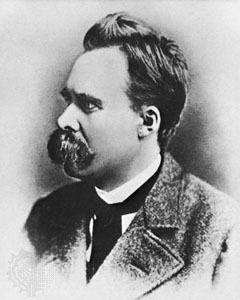CAN GOD WALK INTO AN AMBUSH? (one)

Ask an atheist and he will come up with, “Do I even believe in his existence?” His final conclusion will be, “Of course, yes, all things being equal.” What will be the response of Paul Tillich, whose theology is based upon ontological assumptions? Desiderius Erasmus (1466-1536) the Dutch humanist, will, no doubt, receive a nudge from Humanism in his answer. And it is indubitable what Friedrich W. Nietzsche’s assertion, the author of the teaching, “God is dead” will be. It is most evident that Rev. Chris Okotie, my pastor’s, answer is an emphatic, “No way!”

Rev. Chris Okotie
This topic, to many, sounds so puerile. You will appreciate the germaneness if you are apprised of philosophical foray into theology. Most atheists in an acute obduracy are of the conclusion that, “since this God can’t be accessed….He’s dead;” in their submission. Paul Tillich, a university professor and doctorate degree holder in philosophy is also a Professor of Theology. To him, “the word ‘theology’ conveys the meaning of logos (reasoning) and theos (God and divine things). This places him in the philosophical understanding that God is to be reasoned out! Tillich said that faith is not knowledge, he claims to know. His apologetic theology sees pistis (faith) as gnosis (knowledge) in his reading of the New Testament, which easily arrays him in the toga of a latter-day Gnostic. He sees Jesus as the New Being, a pointer to his Hegelian induction.

Paul Tillich
From his ontological romance, Tillich wrote, “If we say that something is living, we indicate that it is dying.” His Hegelian immersion made him see God as developing from Being: the trinitarian Father is the Power of Being, whom he dialectically set up as the Hegelian new theses standing in antithesis to Logos (Jesus), from which comes a synthesis (Holy Spirit).
The only reason why an avowed Humanist like Desiderius Erasmus would dabble into Church matters is just to muddy the waters of the kerygma, using his excellent ebullience to paint it with humanistic colours. He provided enough support for Martin Luther’s cause but stuck unexpectedly with Catholicism. Erasmus’ ‘Christian’ humanism had blossomed forth in the movement’s confidence that man is quite well able to do without God because he can find absolute and radical freedom from all moral laws in a Christ who has become united with fallen humanity. I believe the reason why Erasmus would not join Luther was not farfetched. He still bowed to Mary, he believed in Catholicism, and is comfortable with transubstantiation: all of which the true Church would reject.

Friedrich W. Nietzsche
Nietzsche wrote a book, “The Madman” where he put the words, “death of God” his Madman cried, “Do we not hear anything yet of the noise the grave diggers who are burying God? Do we not smell anything yet of God’s decomposition? Gods too decompose. God is dead” (Madman). A whole lot of philosophers and theologians gave their active support e.g. Paul Tillich, Rudolf Bultmann, T.J.J. Altizer (who said, “God has actually died), Martin Buber (God is merely an eclipse), Bonhoeffer (who believes that, “Man is now self-sufficient and has no need of God”) and William Blake. These people have quite a large followership.

From the Bible, my sole reference point, which I have studied very well, Jehovah, the God of the Christian Bible, can only be seen, heard and understood by faith. Hypocrisy reigns so effortlessly in the hearts of humanity. Man takes one look at the weather and decides, “I don’t need an umbrella.” He believes his political leader’s promise. “I’ll pass this examination.” When it comes to the Creator he refuses to expend the same faith. He does not know that the enemy is the one behind his nonconformist Gibraltar obduracy. Satan always goes into hiding to set people against the Lord of creation.

The stark reality is that this God of heaven and the earth is the only good One; and that He has carefully planted His true existence inside every living entity. Anyone who denies Him is being stubbornly unrealistic. There are actually two forces. Your repudiation of the good One automatically attracts the evil enemy. You must come to the good God by faith, therefore. Lucifer turns you from this good Jehovah by handing you a useless toy called calculation of empiricism, in the name of philosophy, which takes you on an endless journey of unproductiveness.
(…to be continued…)
Read part two here
Visits: 225



